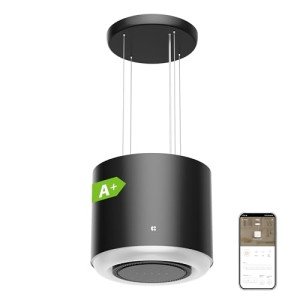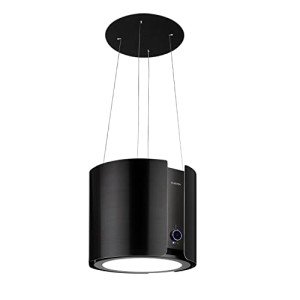Nine Things That Your Parent Taught You About Island Extractors
페이지 정보

본문
Island Extractors: A Comprehensive Guide to a Unique Industry
In the world of extraction industries, couple of sectors record the imagination as vividly as that of cooker island hood extractors. These specialized entities focus on the extraction of important resources, both sustainable and non-renewable, from island communities. This article looks into the multifaceted world of island extractors, discussing their operations, ecological effects, and the future of this specific niche market.

Comprehending Island Extraction
Island extractors are companies or people that engage in the extraction of natural deposits located on islands. This extraction can consist of a variety of products, such as minerals, fossil fuels, and even marine resources. Offered the distinct ecosystems discovered on islands, the extraction process can present both chances and fundamental obstacles.
Categories of Island Extraction
Island extraction can normally be classified into several categories:
| Category | Description | Examples |
|---|---|---|
| Mineral Extraction | The removal of minerals from the earth | Kaolin, Bauxite, Iron Ore |
| Nonrenewable Fuel Source Extraction | Extraction of fuels formed from raw material over millennia | Oil, Natural Gas |
| Marine Resource Extraction | Collecting resources from oceanic environments | Fish, Seaweed, Shellfish |
| Sustainable Resource Extraction | Extraction of sustainable resources | Lumber, Freshwater |
The Process of Island Extraction
The extraction process itself can differ considerably based upon the resource in question. The treatments for drawing out oil diametrically differ from those for collecting seafood.
Steps in the Extraction Process
- Expedition: This phase involves geological studies and initial research studies to examine the capacity of the resource.
- Regulations Compliance: Compliance with regional and global ecological laws is essential to ensure sustainable practices.
- Extraction: This consists of drilling for oil or mining for minerals, and can trigger considerable disturbance to local ecosystems if not managed correctly.
- Transportation: Extracted resources normally need transport back to the mainland or other markets, often involving the usage of ships and barges.
- Post-Extraction Restoration: Efforts to bring back the environment post-extraction are vital to mitigate long-lasting effects.
Ecological Impact of Island Extraction
Given the fragile nature of island ecosystems, the ecological effect of extraction activities can be substantial.
Key Environmental Concerns
- Habitat Destruction: The physical removal of landscapes can devastate local flora and animals.
- Contamination: Resource extraction can introduce pollutants, leading to ocean acidification, water contamination, and air quality degradation.
- Coastal Erosion: Activities can exacerbate seaside disintegration, changing the natural landscape and impacting regional neighborhoods.
- Biodiversity Loss: Extractors typically interfere with regional communities, positioning native types at threat.
Mitigation Measures
To combat these effects, island extractors are significantly embracing sustainable practices which include:
- Implementing stricter ecological policies
- Using technology for much safer extraction procedures
- Conducting thorough ecological impact assessments (EIA)
- Engaging with local communities throughout planning and operation stages
The Future of Island Extraction
As global need continues to increase for natural deposits, the future of island extractors appears appealing yet complex. Several aspects will shape the trajectory of this industry in coming years:
- Technological Advancements: Innovations in extraction technology might cause more efficient and less ecologically disruptive approaches.
- Regulative Changes: As environment modification becomes an ever-pressing problem, more stringent policies may redefine extraction practices, prioritizing sustainability.
- Pressure from Environmental Groups: Increased advocacy for the defense of biodiversity and communities can influence functional protocols.
- Shift towards Renewable Resources: A growing focus on renewable resource solutions may alter the focus from non-renewable extraction to sustainable practices.
Regularly Asked Questions
What resources are typically extracted from islands?
Common resources drawn out from islands include minerals, fossil fuels, timber, freshwater, and marine resources such as fish and seaweed.
How do island extractors ensure sustainability?
Island extractors can make sure sustainability by adhering to environmental regulations, Island Ventilation Hoods incorporating innovation that minimizes effect, and bring back environments post-extraction.
What are the significant difficulties faced by island extractors?
Difficulties consist of compliance with policies, managing environmental effects, logistical issues connected to transport, and engaging with local neighborhoods impacted by extraction.
Are there any significant island extraction tasks?
Yes, numerous jobs exist globally, consisting of mineral mining in the Caribbean, oil drilling in the North Sea, and sustainable fish farming initiatives in Southeast Asia.
The world of island extractors is a complicated interplay between economic opportunity and environmental duty. As this market progresses, the challenge will be to stabilize resource extraction with the requirement to safeguard delicate island extractor fan kitchen communities. By accepting sustainable practices and engaging with regional neighborhoods, Island ventilation cooker hoods for islands (theflatearth.win) extractors can create a path that appreciates both nature and market, guaranteeing that these special environments are preserved for generations to come.

- 이전글You'll Be Unable To Guess Window Doctor Luton's Secrets 25.05.19
- 다음글You Are Responsible For A Extreme Anxiety Symptoms Budget? 12 Top Notch Ways To Spend Your Money 25.05.19
댓글목록
등록된 댓글이 없습니다.



